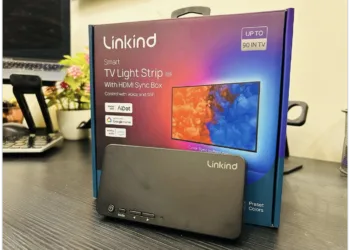In today’s digital age, television options have evolved significantly, leading to an array of choices for consumers. Among these options are smart TVs and Roku TVs, both designed to enhance your viewing experience. However, they differ in functionality, features, and user experience. Let’s explore these differences in detail.
Understanding Smart TVs
What is a Smart TV?
A smart TV is a television set that is equipped with internet connectivity and has built-in capabilities to stream content from various online services. These TVs allow users to access streaming platforms, browse the web, and even run applications similar to a smartphone or tablet.
Key Features of Smart TVs
- Streaming Capabilities: Most smart TVs come preloaded with popular streaming apps such as Netflix, Hulu, and Amazon Prime Video.
- Integrated Browsers: Users can surf the internet directly on their TV, accessing websites and online content.
- App Availability: Many smart TVs allow users to download and install apps from app stores specific to the brand, such as Samsung Smart Hub or LG Content Store.
- Voice Control: Many models support voice-activated features through assistants like Amazon Alexa or Google Assistant.
What is a Roku TV?
An Overview of Roku TVs
Roku TVs are a specific type of smart TV that runs on the Roku operating system. They are designed to provide an intuitive streaming experience and are well-known for their vast library of channels and user-friendly interface.
Key Features of Roku TVs
- Roku OS: This proprietary operating system is designed specifically for streaming and is regularly updated to include new features and improvements.
- Roku Channel Store: Users can access a wide variety of channels from the Roku Channel Store, including both free and subscription-based options.
- Unified Interface: Roku TVs offer a single interface that aggregates content from different streaming platforms, making it easy for users to browse cross-platform content without needing to switch apps.
- Roku Remote: Most Roku TVs come with a remote that has dedicated buttons for popular streaming services, enhancing convenience for users.
Smart TV vs. Roku TV: Key Differences
Operating System
- Smart TVs: Various brands use different operating systems (e.g., Samsung’s Tizen, LG’s webOS).
- Roku TVs: All Roku TVs operate on the Roku OS, which is streamlined specifically for streaming capabilities.
User Interface
- Smart TVs: The interface can vary significantly across different brands, often leading to a disjointed user experience.
- Roku TVs: Offer a consistent and user-friendly interface, making it easier for users to find and manage their content.
Content Access
- Smart TVs: Have access to various apps, but the range depends on the operating system and the brand’s app store. Users may be limited in terms of available channels.
- Roku TVs: Provide access to thousands of channels, including exclusive ones, and generally offer a more comprehensive selection of content.
Software Updates
- Smart TVs: Update schedules vary by brand; some may not support continuous updates, thus limiting new features over time.
- Roku TVs: Regularly receive updates from Roku, which ensures ongoing support and improves functionality.
Additional Considerations
Price Range
- Smart TVs can vary in price widely depending on the brand, features, and screen size.
- Roku TVs are generally competitively priced, often offering good value for their features.
Compatibility with Other Devices
- Smart TVs: Many smart TVs work with multiple third-party devices, but compatibility may depend on the specific TV model.
- Roku TVs: They usually integrate seamlessly with various devices, including Amazon Alexa and Google Assistant, enhancing the smart home experience.
Internet Connection Requirements
- Both smart TVs and Roku TVs require a robust internet connection for optimal performance, especially when streaming high-definition content.
By understanding these differences, consumers can make informed decisions when choosing between a smart TV and a Roku TV, ensuring they select a device that fits their viewing habits and preferences.







